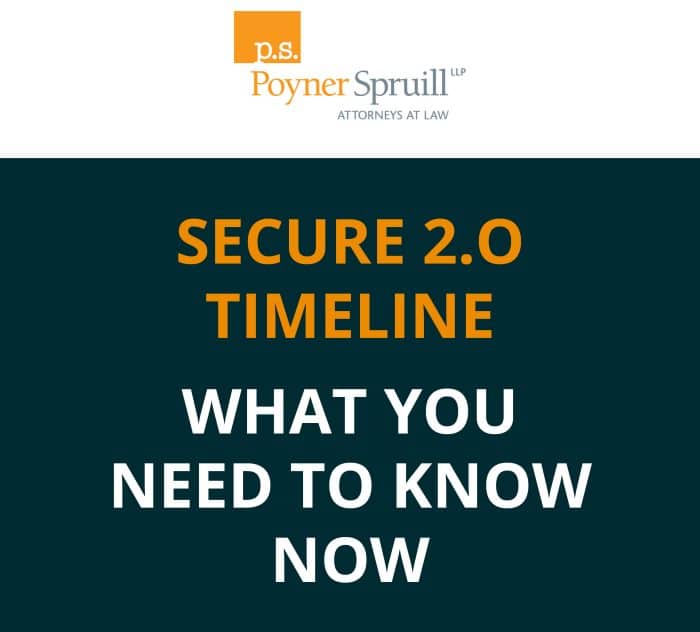We come with breaking news that will be welcomed by many smaller plan sponsors! The DOL has amended the Form 5500 forms and instructions for 2023 and significantly changed how a plan sponsor counts participants for determining whether it is eligible for the small plan simplified Form 5500 reporting.
What’s the new rule? Generally, plans with fewer than 100 participants can take advantage of simplified Form 5500 reporting—most notably, the plan does not have to be audited by an independent qualified public accountant. Rather than determining whether that threshold is met by counting all participants that are either eligible or have an account balance, the new rule will count only the number of participants and beneficiaries with account balances at the beginning of the plan year.
What is the impact? The DOL expects this change to reduce the number of plans that must file as large plans by nearly 19,500 filings. Even assuming only a $7,500 audit cost, that is about $146 million in cost savings for small plan sponsors and their participants!
When is this effective? This is effective immediately for plan years beginning on or after January 1, 2023. Filing and audit requirements for the 2022 plan years will still be determined based on the prior counting rules.
Why was this change made? The small plan threshold has always been a reflection that the cost of an audit outweighed the benefits for some small plans. The DOL has been evaluating the old counting rule in light of the increasing costs of plan audits and the change in eligibility rules related to long-term, part-time employees that would increase the number of plans subject to audit. In balancing the costs and benefits of an audit, the final rule reflects the DOL’s belief that the cost of audits is more appropriately and fairly borne by plans with at least 100 account balances.
This is fantastic news for plan sponsors that will be part of the over 19,000 plans that no longer need to bear the cost of an audit. It will also pave the way for larger employers to offer a plan and for existing plan sponsors to expand eligibility with less risk of triggering an audit. Compliance still remains paramount for all plans, of course, and the need to work with knowledgeable vendors and attorneys to provide compliance oversight and keep plans in compliance is as important as ever.


